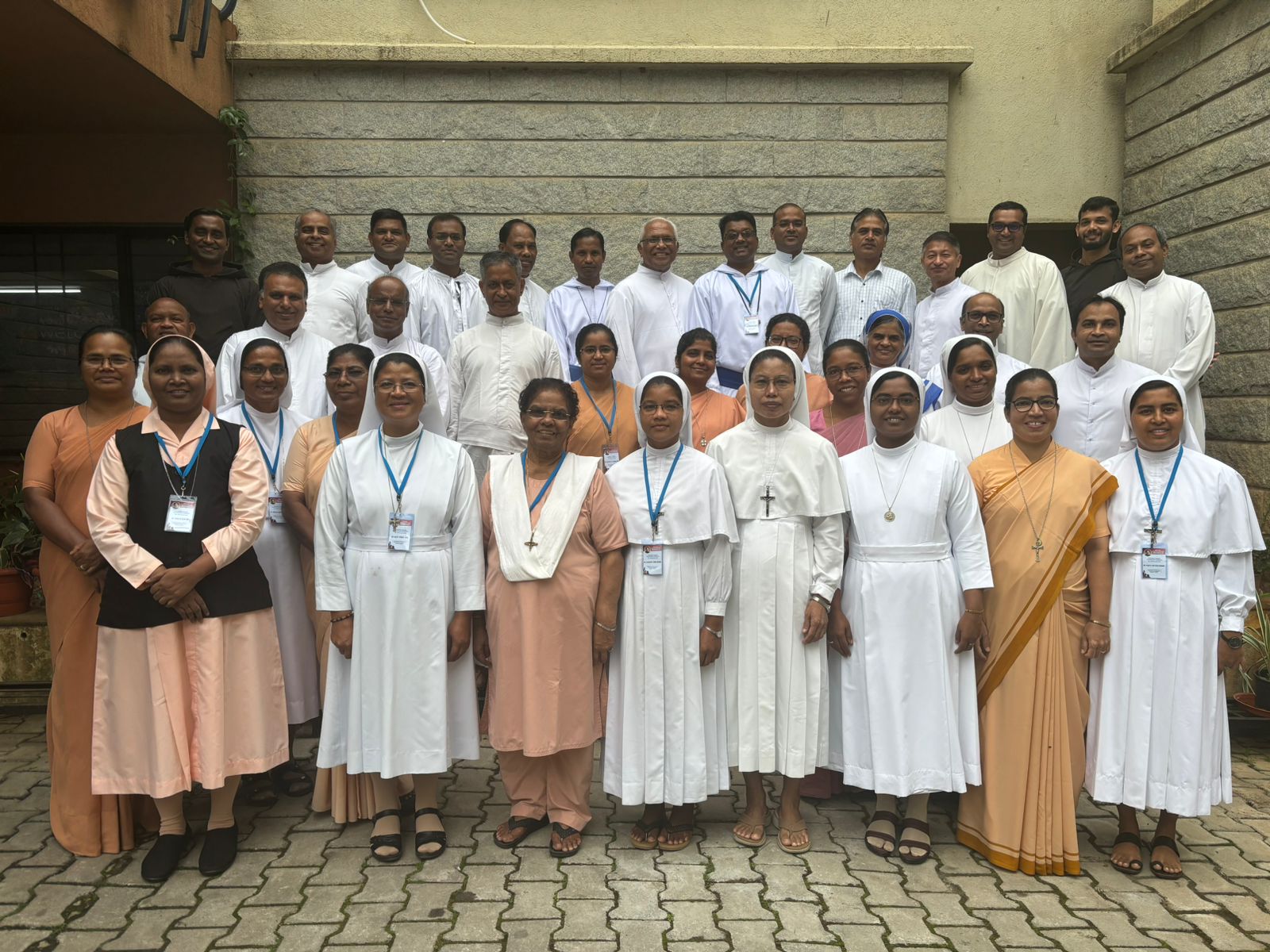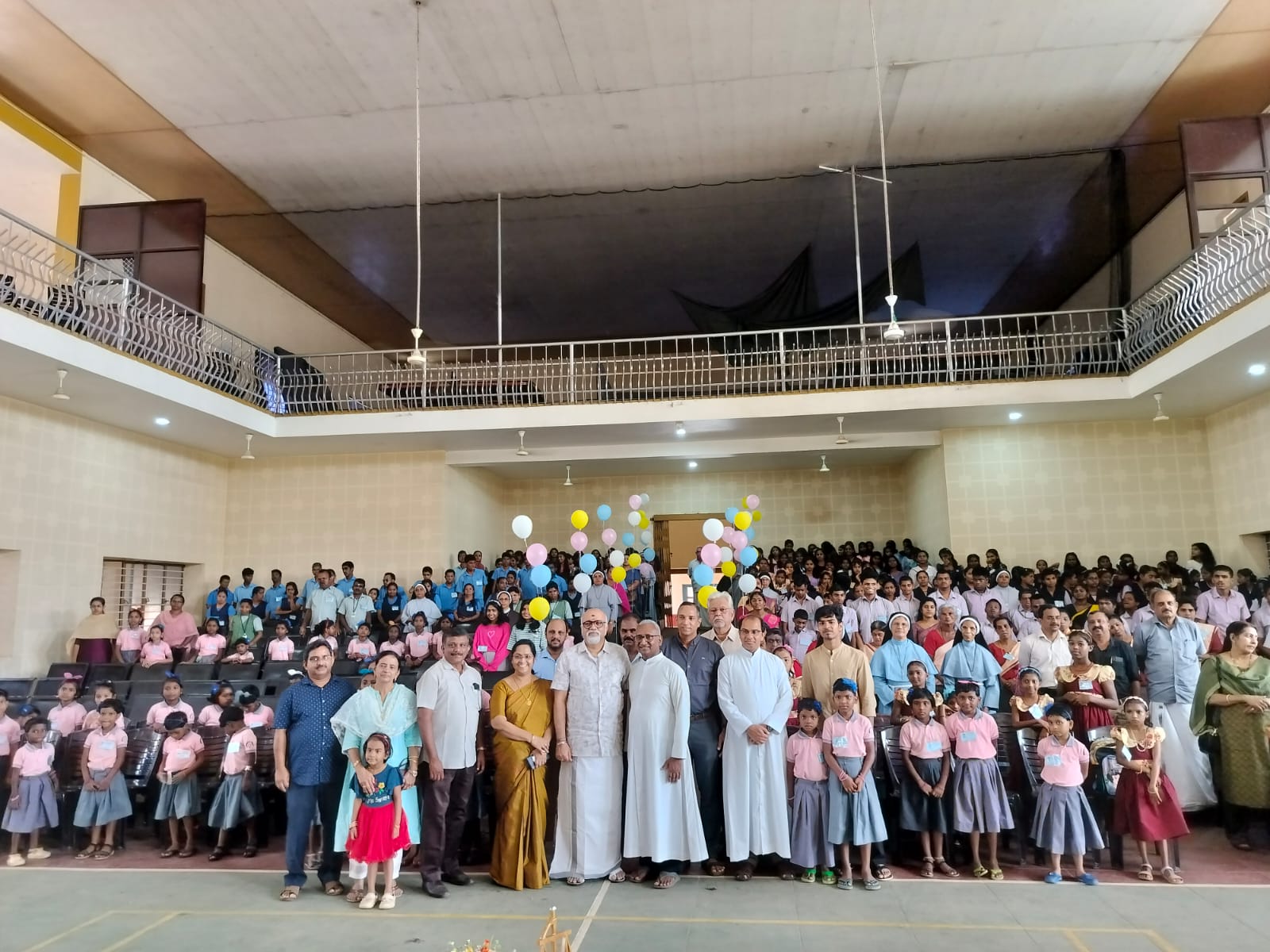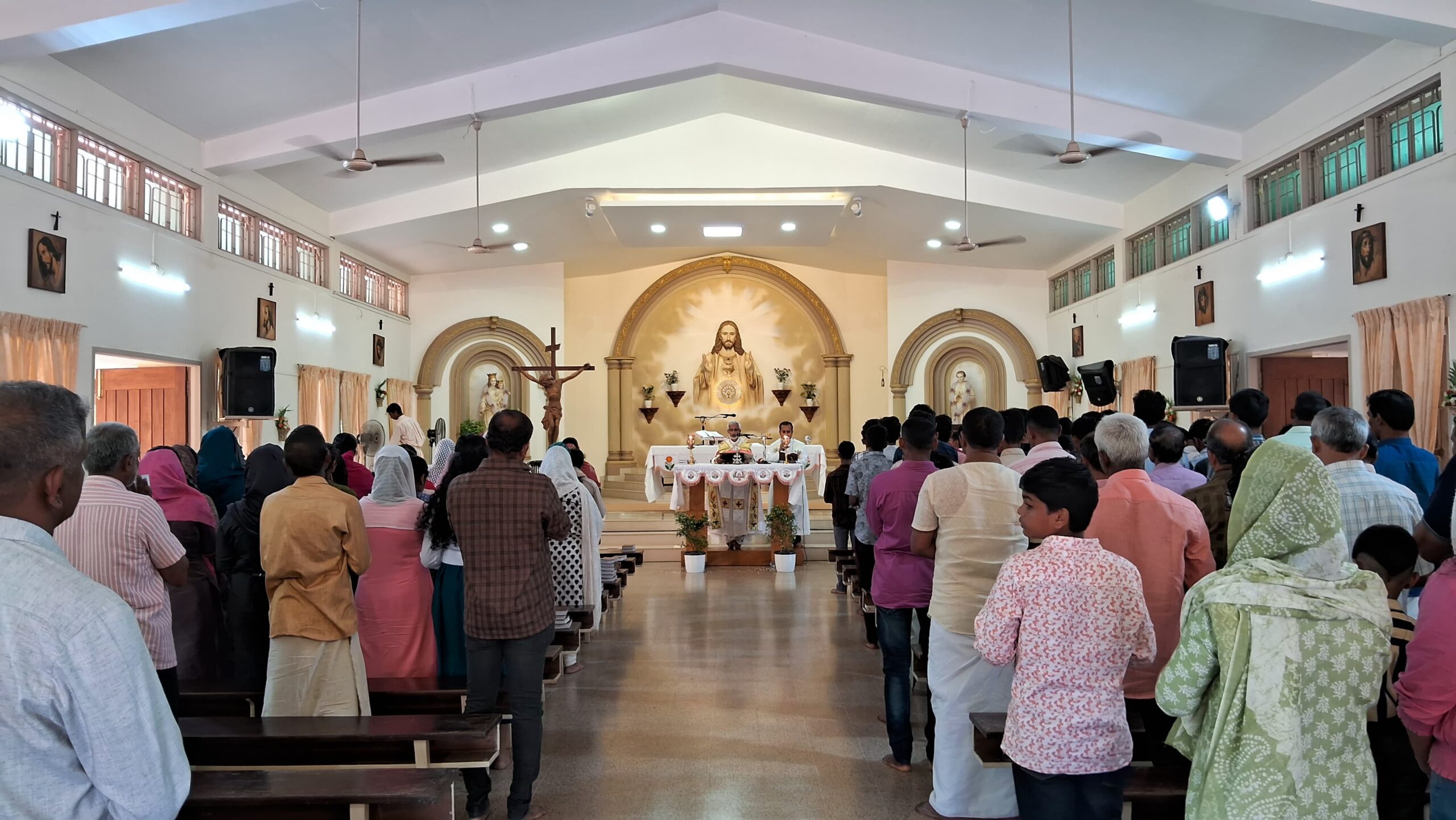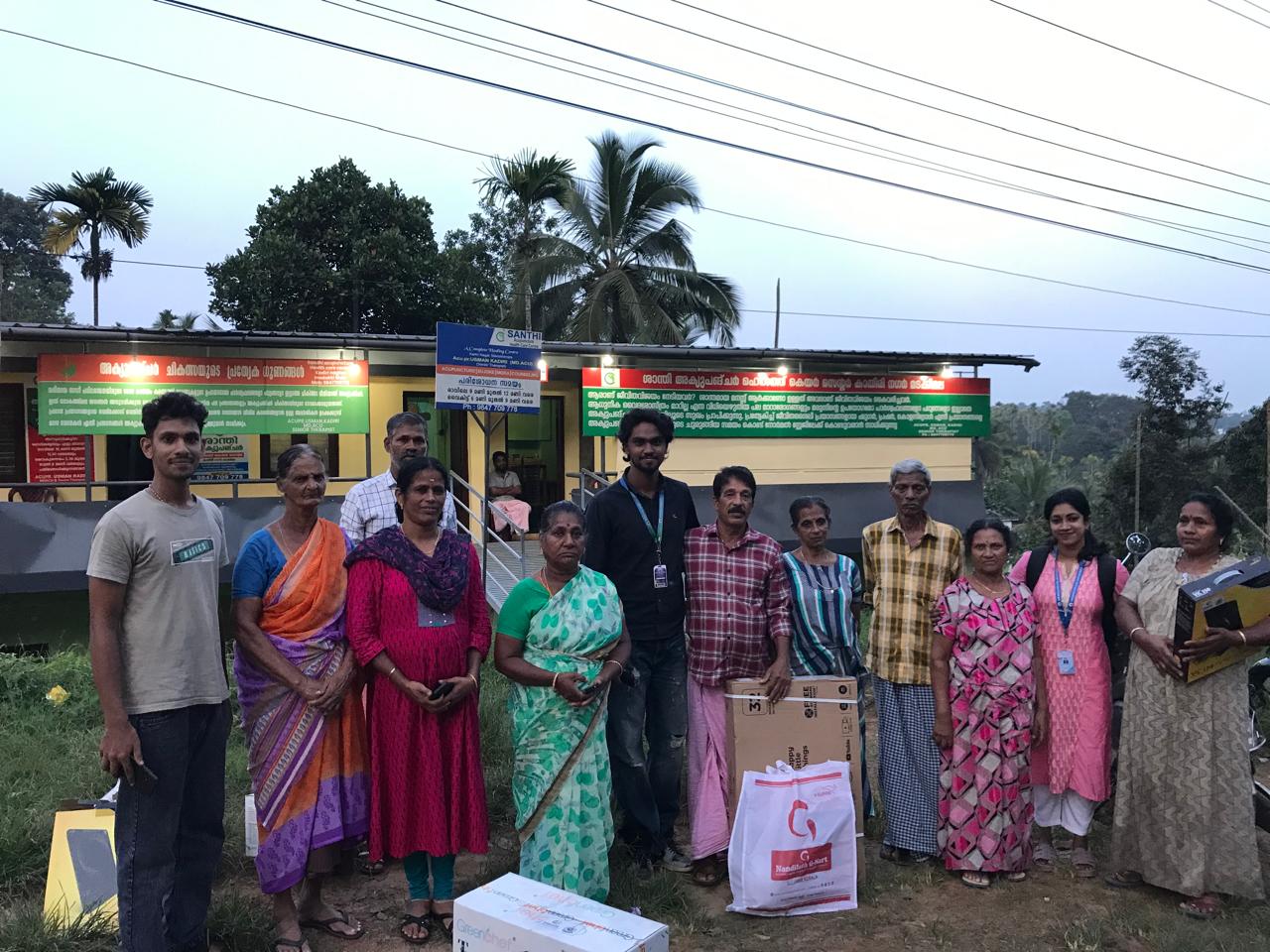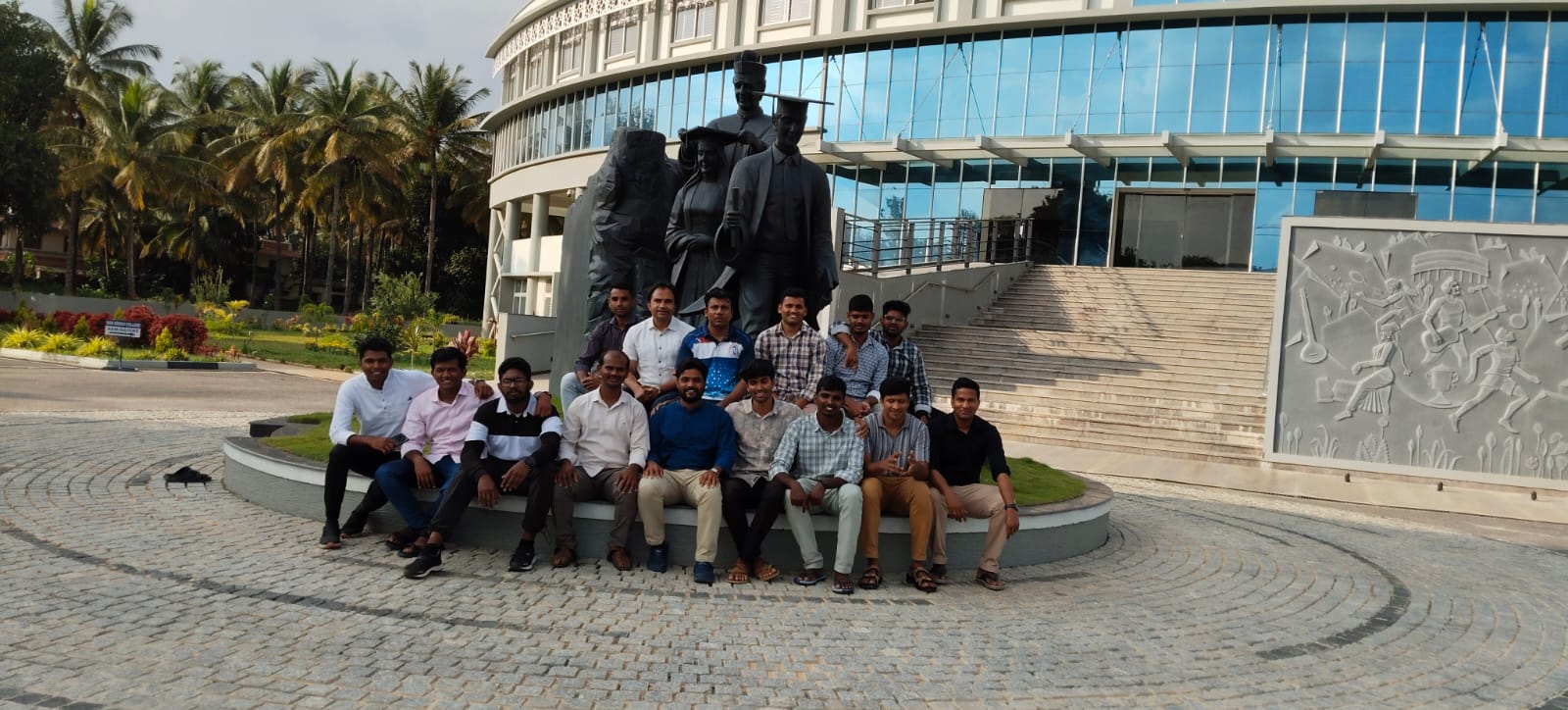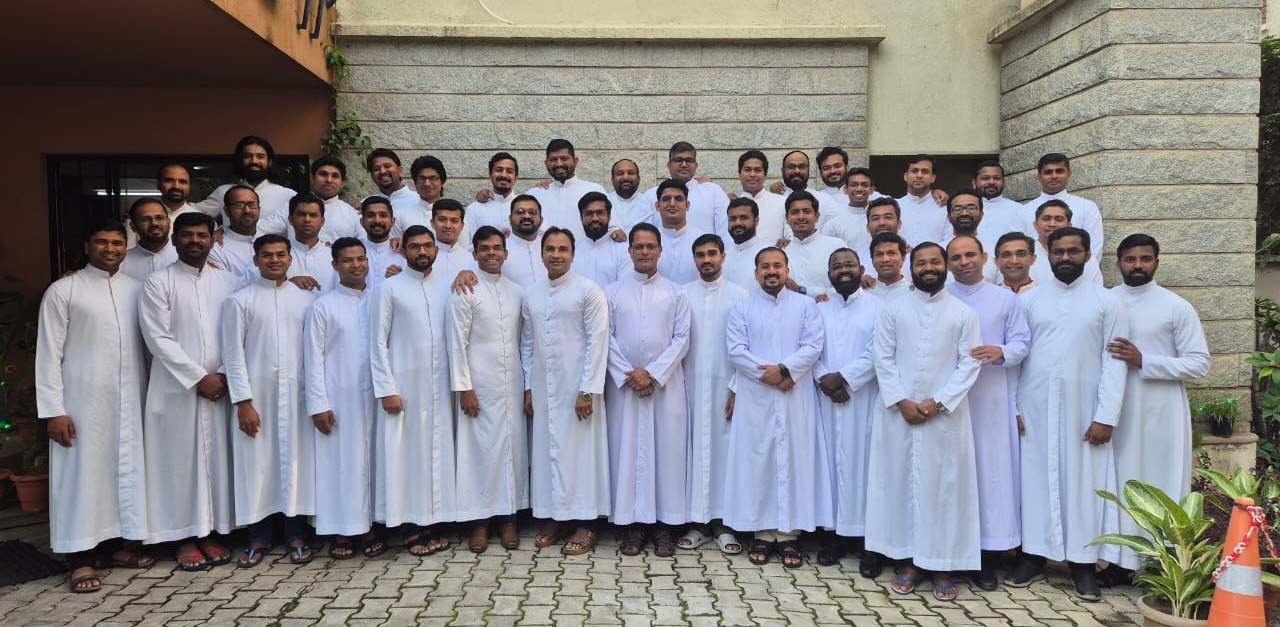
INTEGRATION OF INTERIORITY AND ACTIVITY
As we enter the month of May when our transfers take place every year our thoughts might be that we are at the end of another year of arduous ministry in the community in which we have been and that some of us may be moving out to other communities for new assignments. Most of us may be more focussed on the activities rather than the dimension of our interiority. However, our vocation and life as consecrated Salesians entail an integration of interiority and activity. GC 23 expressed it emphatically when it said, “For the Salesian, educating youth to the faith means work and prayer”. Pope John Paul II reiterated the same in his address to the members in the course of the same Chapter (GC 23) saying, “… it ensures the vital inseparability between union with God and dedication to one’s neighbour, between depth of interior evangelical meditation and apostolic activity, between a praying heart and busy hands.”
Don Rinaldi who recognized the necessity of this integration of interiority and activity defined the Salesian spirit with his beautiful expression, “tireless industry made holy by prayer and union with God” (cf. C 95). It means that the Salesian makes his life an oblation to God, offering him spiritual veneration and celebrating in the trials of daily living the great “liturgy of life” (C 95). The reference here is to the “contemplative dimension”, which must so deeply be rooted in the Salesian as to permeate and imbue his every activity. The ‘grace of unity’ in our vocation is to be found not primarily in activity, nor even in the ‘practices of piety’, but in the interiority of a person of whom it pervades the whole being. Before finding expression in activity or in prayer, it is a kind of ‘spiritual dynamism’, in so far as it is the conscious participation in the very love of God through self-donation in practical availability for the work of salvation.
In this sense apostolic industry is an expression of interior spirituality. The document published by the Sacred Congregation for Religious and for Secular Institutes “The Contemplative dimension of religious life” espouses it: “The very nature of apostolic and charitable activity contains its own riches which nourish union with God. It is necessary to cultivate every day an awareness and deepening of it. Being conscious of this, religious will so sanctify their activities as to transform them into sources of union with God, to whose service they are dedicated by a new and special title”. The religious community in itself is a ‘theological reality, and object of contemplation, a place where the experience of God should reach its fullness and be communicated to others. The Salesian is shown a way for savouring the “depths of God” (1 Cor 2, 10) in every circumstance of his life, in activity and lack of it, from dawn to dusk: it is a concrete com-penetration of action and contemplation in the spirit of the ‘da mihi animas’.
Don Bosco has taught us to recognize God’s operative presence in our work of education, and to experience it as “light and love”. We need to believe that God is awaiting us in the young to offer us the grace of meeting with him and to dispose us to serve him in them, recognizing their dignity and educating them to the fullness of life. In this way our work of education becomes the preeminent context in which to meet him. Hence action includes the contemplative dimension and the latter unites in a harmonious manner prayer, pastoral commitment and apostolic suffering. “Prayer, action and affliction”, wrote Fr Viganò, “are together referred in vital fashion to two poles: never God without man; never man without God”.
Prayer and action characterize our life directing us in our mission of salvation through the fulfilment of God’s will. Don Bosco and his successors have frequently made reference to this reality with various other expressions: “union with God, the constant sense of his presence, interior life, activity sanctified by prayer”. But it is Don Philip Rinaldi who highlighted the expression very clearly. In the Strenna for the Daughters of Mary Help of Christians of the year 1931 on the interior life of Don Bosco, he exhorted them to realize in themselves a vital synthesis between the activity of Martha and the contemplation of Mary. It was a case, he said, of a “simple, evangelical, practical and laborious life”. “Don Bosco”, he explained, “united in the most perfect degree his tireless and absorbing external activity, so far flung and laden with responsibility, with an interior life which began with the sense of the presence of God… which gradually became actual, living and persistent, so as to be a perfect union with God. In this way he realized in himself the most perfect state, operative contemplation, the ecstasy of action, in which he was consumed to the very end, with ecstatic tranquility, for the salvation of souls”. This would be the Salesian interpretation of “contemplative in action”, a phrase of Jesuit origin, quoted in art.12 of our Constitutions. It will be profitable for us in this context to look at article 12 which we need to read and meditate often.
“As he works for the salvation of the young, the Salesian experiences the fatherhood of God and continually reminds himself of the divine dimension of his work: “Apart from me you can do nothing”. He cultivates union with God, aware of the need to pray without ceasing in a simple heart-to-heart colloquy with the living Christ and with the Father, whom he feels close at hand. Attentive to the presence of the Spirit and doing everything for God’s love he becomes like Don Bosco a contemplative in action” (Const. Art. 12).
We should never forget that we are not doing merely material or professional work detached from the mission entrusted to the community, but daily work done in accordance with God’s will. In all our activities we are sent by God and guided by the Spirit: We are his collaborators (cf. 1 Cor 3,9); it is God we serve in the poor and the little ones; it is for his glory and Kingdome that we work. When we become aware of this presence of God, we will recognize our absolute need to remain in him. “Apart from me you can do nothing!” (Jn 15,5). Art.12 thus is an invitation to us to experience God by living an interior and spiritual life in conscious awareness that we are in relationship with God in our daily life of apostolate. It is the way that Don Bosco lived it being always in the intimate presence of God that made him extraordinarily fervent. Like Don Bosco about whom Fr. Piccollo gave testimony, “He always prayed. In him, union with God was uninterrupted” (BM XII, 266), every one of us Salesians should feel the need to pray “without ceasing”. Since charity is the soul of every apostolate, it follows that the apostolate becomes the soul of Salesian prayer.
While reflecting on interiority and activity the profound words of Pope Benedict XVI should reverberate in us: “Consecrated life, more than ever today, is called to become a fire that ignites other fires and lights up the heart. It is called to fervour, intensity of prayer, evangelical radicalness, and service in mission proper to the missionary and the disciple” (Pope Benedict XVI). Our first duty, in fact, is that of being with Christ. As Pope John Paul II warned, a “constant danger for apostolic workers is to become so much involved in their work for the Lord as to forget the Lord of all work”. Therefore, let every one of us ensure that even if we may have an exhausting rhythm of apostolic commitments, we will be faithful to the daily rhythm of personal and community prayer. Together with it we should give utmost attention to the participation in the monthly and tri-monthly recollections and annual retreat. If there is in any of us a tendency or practice of absenting from the community practices of piety and personal prayer which emerge from negligence or shallow interiority let us try to strengthen and deepen it.
-
THE SACRED H...
04 August 2024 -
THE SPIRITUA...
04 August 2024 -
EMBRACING EA...
04 August 2024 -
ST. JOSEPH: ...
04 March 2024 -
Dream of Don...
22 January 2024 -
THE EDUCATIV...
08 September 2023 -
INTEGRATION ...
11 May 2023 -
Salesian Adm...
10 April 2023 -
REKINDLING A...
09 March 2023 -
AN INVITATIO...
24 February 2023



